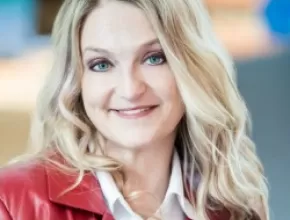Lean and green. Two keynotes that Visit Florida—the state’s public/private tourism marketing corporation—has been striking lately were amply reinforced at this year’s Governor’s Conference on Tourism, which was shortened not only time-wise, but also paper-wise, as most of the state’s promotional and industry-related communications were dispersed via flash drive.
Paring down from a three-day to a 24-hour format, the conference stayed focused on its main theme, “Selling the Sunshine,” which in the current economic climate carried the implied subtext, ”Don’t give up; keep moving forward.” Time and again, conference speakers exhorted the crowd of tourism industry partners—including attractions and visitor bureaus—to press on with marketing and promotional efforts despite the impulse to curtail or cut them out altogether.
“You can’t afford not to invest in marketing efforts, even in years like this one,” declared Ed Fouché, chairman of Visit Florida’s board of directors and senior vice president of travel industry sales for Disney Destinations, LLC. “Marketing is the lifeblood of our industry.”
To that end, Visit Florida has changed the way it helps industry members market themselves. Whether they’re a major theme park or a small alligator farm, a member’s presence on VisitFlorida.com starts at the bargain rate of $95 a year.
“We’ve made some fundamental shifts,” noted Will Seccombe, Visit Florida’s chief marketing officer. “We used to talk about Visit Florida as an umbrella marketing organization; now we see ourselves as more of a platform organization. We’re trying to shift Visit Florida from a noun to a verb.”
Seccombe took creative syntax further when discussing Visit Florida’s willingness to find effective marketing plans for its members.
“Everything is co-opable,” he said.
“It might not be great grammar, but it’s great business. We’ve redoubled our co-op efforts,” he added, pointing to a new online advertising/marketing planner detailing such shared promotional programs.
“We’re battling a challenging economy; there is no bottom for a lot of businesses,” Seccombe also stressed. “But with scarcity comes clarity. We have to just plain go for it.”
Indeed, the idea of doing more with less resonated throughout the conference, but never more so than during a candid address by Visit Florida’s new president and CEO, Chris Thompson.
“We lost over 30 percent of our budget,” Thompson told the crowd, referring to Visit Florida’s recent reduction in state funding from $35.5 million in fiscal year 2008/20009 to $25 million in fiscal year 2009/2010. “But we’re here, and we’re still having this conference," he added.
Internal reorganizations and more collaborative marketing efforts have been at the forefront of Visit Florida’s financial recovery, though Thompson acknowledged that “if we can’t demonstrate ROI, we will get budget cuts. Tourism marketing works, but only if we do it together.”
However, in a state with “tourism in its DNA,” as Gov. Charlie Christ put it during his morning address, Florida seems more than up to the challenge.
Other highlights of the conference—held at the newly reopened Fontainebleau Miami Beach—included a presentation by economist and author Richard Florida, who called current economic conditions a “Great Re-Set” rather than a Great Depression, likening it to the wrenching transition from an agrarian to an industrial economy the U.S. underwent in the late 1800s-early 1900s.
“We’re managing a bigger economic transformation today than before,” he said, claiming that “creative” careers in the arts, law, medicine and technology will be the ones to drive the economy forward. For this so-called “creative class,” meaningful travel experiences are paramount, Florida said.
Which definitely qualifies as “sunshine” for that other Florida.





